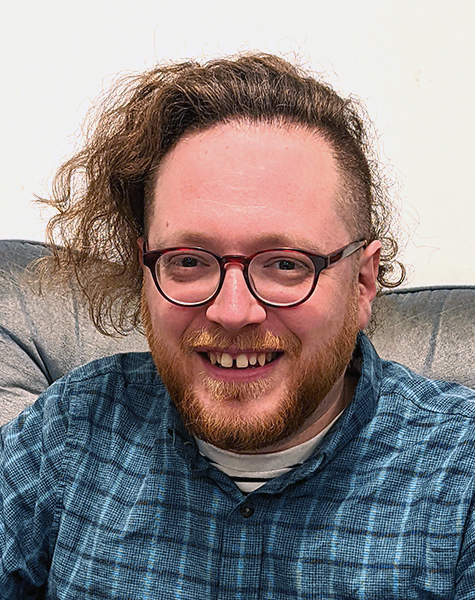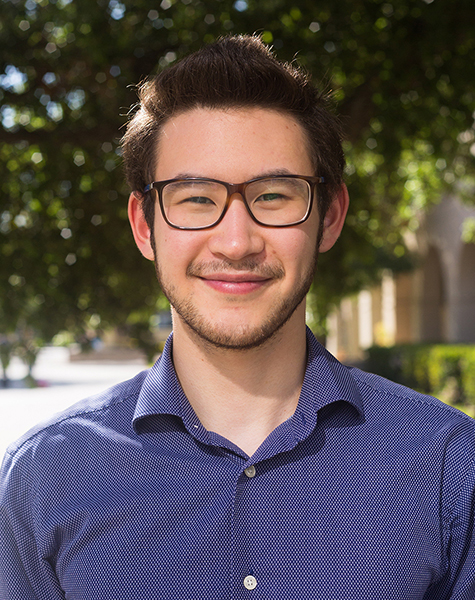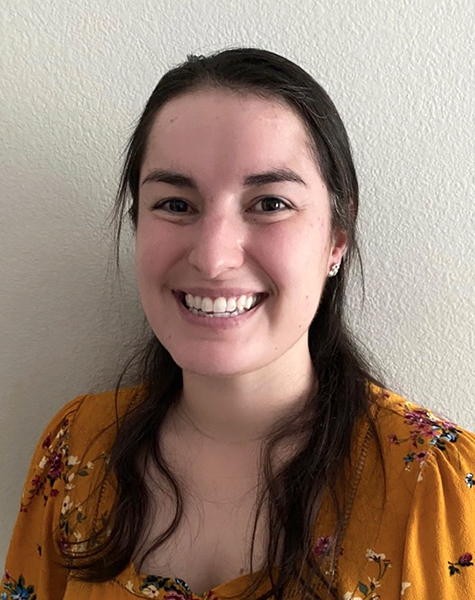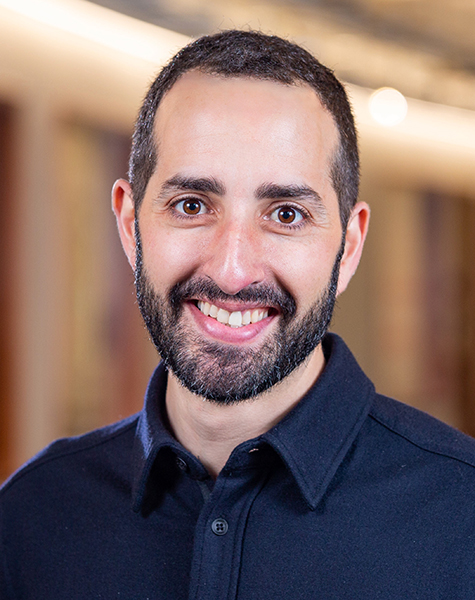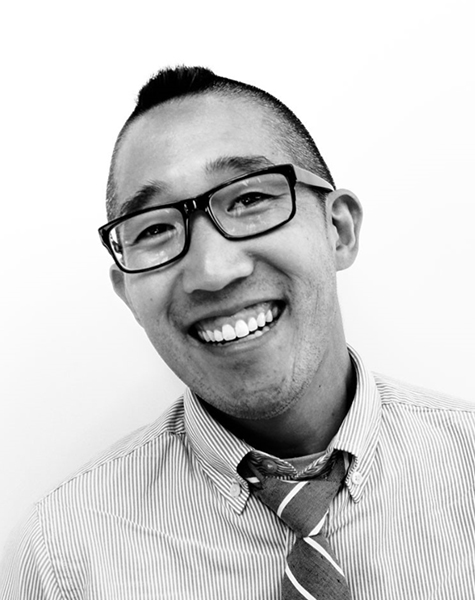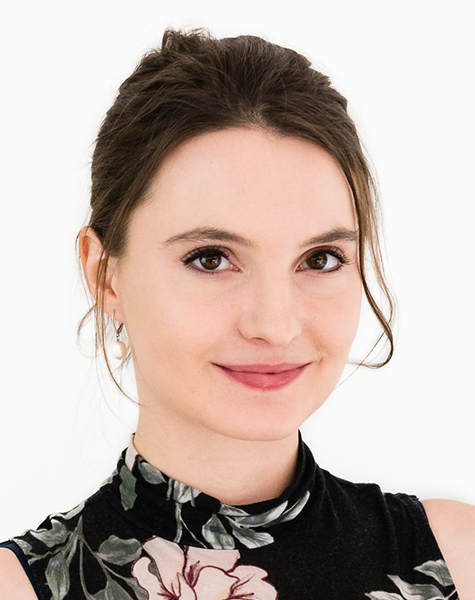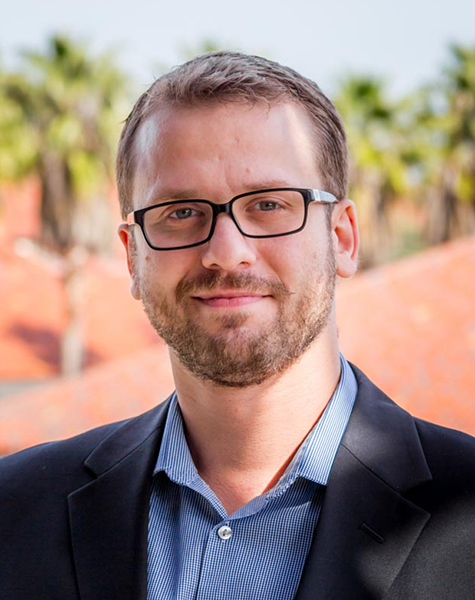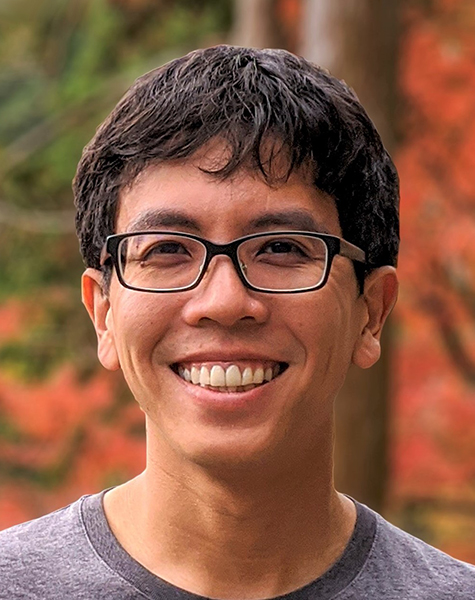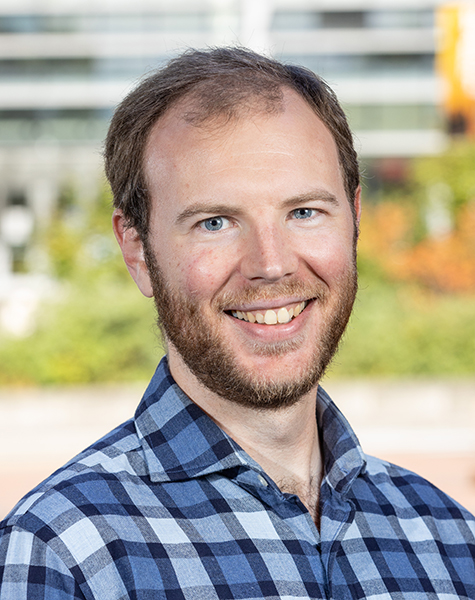When it comes to recruiting at the University of Washington, the latest promising commits to the Husky football team tend to grab most of the headlines. Here in the Allen School, we’re pursuing our own version of “Purple Reign” on a different playing field: the intense competition that is faculty recruiting in computer science and computer engineering.
The results of the 2022 season are in, and the Allen School scored nine outstanding educators and researchers who are rising stars in their respective disciplines. The newcomers will strengthen the school’s historic leadership in core areas such as systems and architecture, programming languages, and computer science education while expanding our impact in rapidly growing areas such as computational neuroscience, machine learning, quantum computing, and more.
Throw your dubs up for the newest additions to the Allen School and UW campus community:
Gilbert Bernstein: High-performance domain-specific languages for simulation, optimization and design
Gilbert Bernstein bridges the fields of computer graphics and programming languages to develop domain specific languages (DSLs) that enable high-performance computing applications for physical simulation, optimization and design. His approach, which employs data abstraction for portability across architectures and decouples mechanism and policy in the scheduling of code and data structures, enhances system performance without the inherent tradeoffs of conventional techniques or the development and maintenance costs associated with customized software and hardware co-design. High-performance DSLs can be adapted to domains as varied as climate modeling, construction, drug development, fabrication, the visual arts and more — without requiring programmers to have deep domain expertise. Recent contributions include Aetherling, a DSL that enables hardware engineers to easily explore complicated space-time tradeoffs when developing hardware accelerators for system-on-a-chip designs, and an interactive sketch-based tool that assists quilters in creating designs compatible with foundation paper piecing to democratize fabric design and manufacturing. He previously contributed new approaches for working with 3D mesh data structures, editing vector graphics, and developing complex physical simulations.
Bernstein earned his master’s degree in 2012 from the Allen School before going on to complete his Ph.D. at Stanford University. He is currently pursuing postdoctoral research at the University of California, Berkeley and MIT and will officially join the Allen School faculty in January 2023.
Andrea Coladangelo: Understanding quantum information through the computational lens
Andrea Coladangelo will join the Allen School faculty and the UW’s interdisciplinary QuantumX initiative in January. Coladangelo’s research focuses on the intersection of quantum computation, cryptography and complexity theory, with an emphasis on understanding the interplay between quantum information and ideas from computational hardness. In a recent example of this, he devised a new encryption scheme that protects against coercion in online elections in a way that is fundamentally impossible to do classically. In other work, Coladangelo showed how, in stark contrast with the classical setting, quantum communication allows one to realize the very general cryptographic functionality of secure multi-party computation from one-way functions — the latter being an object of essentially minimal cryptographic complexity. Going forward, Coladangelo is keen to explore the two-way interaction between quantum information and cryptography: On the one hand, how quantum information can be leveraged to achieve cryptographic functionalities that are beyond what is achievable classically, such as copy-protection of programs; on the other, how cryptographic hardness can be used to test and prove “quantumness,” as well as to understand the limits of quantum computation.
After earning his Ph.D. from Caltech, Coladangelo went on to pursue a postdoc at the University of California, Berkeley and the Simons Institute for the Theory of Computing. He is an editor of the open-access, peer-reviewed journal Quantum and a co-founder of qBraid, a cloud-based platform for experimenting with quantum programs.
Elba Garza: Accessible and engaging computer science education for a variety of learning styles
Elba Garza joined the faculty this fall as a teaching professor in the Allen School’s revamped introductory course sequence. As co-instructor of the course focused on students with little or no prior programming experience, Garza is particularly keen to ensure that the school delivers introductory computer science in a way that supports first-generation students and those from historically marginalized backgrounds as part of building a more diverse academic community. She is also interested in advancing methods for presenting course content in a cohesive manner while incorporating a variety of techniques for engaging students with diverse learning processes, inspired by her own experience as a student diagnosed with a type of Attention Deficit/Hyperactivity Disorder (ADHD). Garza’s background in computer architecture also prepares her to teach a variety of upper-division systems and architecture courses.
Garza earned her Ph.D. from Texas A&M University, where her research focused on the development of microarchitectural predictive structures and policies. Prior to her arrival in Seattle, Garza was a member of AccessComputing, a UW-based program that provides mentorship and learning opportunities for students with disabilities to pursue computing education and careers. She also co-founded and served on the steering committee of the Computer Architecture Student Association (CASA), a student-run organization with the goal of fostering well-being and inclusion within the computer architecture community.
Matthew Golub: Computational techniques for understanding and augmenting neural processes
Matthew Golub’s research focuses on computational neuroscience, with an emphasis on advancing the theory and tools needed for understanding computation and communication within large networks of neurons in the brain. Golub’s work has demystified how these networks of neurons coordinate to enable, and sometimes constrain, the brain’s ability to learn, generate decisions, and control movements. A core approach to his research is to view a network of neurons as a nonlinear dynamical system whose activity evolves over time due to how those neurons are connected and the inputs they receive from other networks in the brain. Golub’s contributions include FixedPointFinder, a software toolbox for revealing the computations performed by such nonlinear dynamical systems. This approach, which is broadly applicable to different organisms, regions of the brain, and tasks, can help researchers identify the most promising avenues for more costly and labor-intensive experimental validation. Golub also co-led a series of studies exploring the neural mechanisms that influence the learning and performance of new tasks, in the contexts of both naturalistic movements and brain-computer interface operation.
Golub will join the Allen School faculty this December after completing a postdoc at his alma mater Stanford University, where he earned his bachelor’s and master’s degrees. In between, he earned his Ph.D. in Electrical & Computer Engineering at Carnegie Mellon University.
Scott Sumio Ichikawa: Elevating design practices and education in service to society
Scott Sumio Ichikawa joined the faculty over the summer as a teaching professor and associate director of the UW’s Master’s in Human-Computer Interaction & Design (MHCI+D), which combines expertise from the Allen School, Information School, Department of Human-Centered Design & Engineering and the Division of Design in the School of Art + Art History + Design. Ichikawa’s devotion to advancing the ethical design of products and services for diverse users is matched by his commitment to mentoring the next generation of socially-aware design leaders — twin goals that are a natural fit for his leadership of MHCI+D. Ichikawa, who holds a Master of Design in Interaction Design from the UW, is already well-known within the MCHI+D community, having spent three years as an instructor for a range of undergraduate and graduate courses focused on foundational interface design, user research and evaluation, design methods, interaction design, and more.
In addition to leading his own independent design consultancy, Run, Jump & Fly, for the past 20 years, Ichikawa has held leadership roles at multiple design studios, where he worked with household names in technology, sports, consumer appliances and electronics, and the arts. He holds two patents related to the design of graphical user interfaces for planning and monitoring surgical procedures.
Natasha Jaques: Advancing human-centered AI through social reinforcement learning
Natasha Jaques develops techniques for enabling artificial intelligence agents to engage in social learning, in which they acquire and practice increasingly complex behaviors from ongoing interaction with each other and with humans. Her goal is to build AI systems that can perform complex tasks, incorporate feedback from human social and emotional cues, and adapt seamlessly to new situations in order to assist humans with everyday tasks as effectively as another human can. For example, Jaques proposed a framework for enhancing coordination and communication in multi-agent reinforcement learning by rewarding agents for exercising causal influence over the actions of other agents. She also developed PAIRED, a novel reinforcement learning technique in which an environment generator builds increasingly complex environments for a pair of agents to solve and maximizes regret between the two to make the learner more robust. PAIRED demonstrated how multi-agent training can improve learning and generalization for a single AI agent. Jaques also proposed a method for training language models using reinforcement learning and human feedback that uses KL-control to minimize divergence from the original model trained on data. Going forward, Jaques intends to focus her research on developing agents’ ability to use social learning to acquire complex behavior, generalize to new environments, perceive and adapt to a person’s needs in real time, and to understand natural-language commands.
Jaques earned her Ph.D. from MIT and is currently a senior research scientist at Google Brain and a visiting postdoctoral scholar at University of California, Berkeley. She will join the Allen School faculty in January 2024.
Baris Kasikci: Building efficient and trustworthy systems across the computing stack
Baris Kasikci develops techniques for building efficient and trustworthy computer systems capable of delivering high performance at scale while minimizing bugs and security vulnerabilities. His work draws upon a range of disciplines, from systems and security, to computer architecture and programming languages, to produce solutions that span the entire computing stack. His contributions to software and applications include REPT, a practical tool for reverse debugging of failures in deployed software systems that is used in over a billion Windows systems worldwide, and OPTIMUS, the first hypervisor that supports scalable, flexible shared-memory virtualization of FPGAs for accelerating applications in the cloud. On the hardware side, Kasikci and his collaborators discovered microprocessor vulnerabilities such as Foreshadow that put billions of devices at risk. His group subsequently developed techniques to mitigate those risks while preserving performance, including NDA, which breaks the chain of dependent wrong-path instructions to head off speculative execution attacks at their source, and DOLMA, which introduced the principle of transient non-observability to comprehensively protect against transient execution attacks. Kasikci has also contributed to hardware/software co-design techniques for improving the performance and efficiency of data center systems that have been adopted by companies such as Intel and ARM.
Kasikci will join the Allen School next summer from the University of Michigan, where he has been a faculty member in the Electrical Engineering and Computer Science Department since 2017. During that time, he earned a National Science Foundation CAREER Award, a Microsoft Faculty Fellowship, an Intel Rising Star Award and a VMware Early Career Grant. Kasikci holds a Ph.D. from the École Polytechnique Fédérale de Lausanne (EPFL).
Pang Wei Koh: Making machine learning systems robust and reliable in the wild
Pang Wei Koh focuses on the theory and practice of building reliable machine learning systems for real-world deployment. His research encompasses tools for inspecting model behavior; approaches for dealing with noisy, incomplete or contaminated data; and techniques for benchmarking and mitigating distribution shifts that contribute to model failure. For example, Koh developed an efficient and scalable method for explaining black-box model predictions by applying influence functions to identify which training examples contributed most to a given prediction. To support data-driven COVID policy, Koh helped develop a framework that combined population-scale mobility data with epidemiological modeling to assist policymakers in analyzing the impact of reopening policies on infection rates and societal inequities. Koh also co-led the development of WILDS — a curated set of benchmarks that reflect real-world distribution shifts for machine learning models deployed in domains spanning agriculture, biomedicine, wildlife conservation and more — as well as distributionally robust optimization methods for mitigating the effects of such shifts. He aims to build on his past work by developing techniques that will aid models in reliably extrapolating information from new data, improve model performance based on interactions with end users, and optimize models trained on broad data.
Koh is currently a senior research scientist at Google Brain and will join the Allen School in fall 2023. He was recently named among MIT Technology Review’s 2022 Innovators Under 35 Asia Pacific for his research. Before earning his Ph.D. from Stanford University, Koh was the third employee at Coursera, where he built and led the team responsible for course content and university partnerships.
James Wilcox: Computer science education as refined storytelling
Allen School alum James Wilcox (Ph.D., ‘21) joined the faculty this fall as a teaching professor. His teaching interests include programming languages, systems programming, and reasoning about programs, and he enjoys teaching undergraduate and graduate as well as majors and non-majors courses. Wilcox’s favorite part of teaching is the creative process of learning, revising, and telling “the story” of each course in the spirit of oral tradition handed down from generation to generation.
Prior to joining the Allen School faculty, Wilcox taught multiple course offerings as a graduate student or lecturer, spanning undergraduate and graduate programming languages, software design and implementation, web browser engineering, introduction to systems, and more. His Ph.D. is in the theory of programming languages and focused on the application of formal reasoning techniques to distributed systems, including the first machine-checked proof for the popular Raft consensus protocol.
Including the 2022 recruiting season, the Allen School has added a total of 24 new faculty members over the past three years. Other recent arrivals are advancing transformational research focused on topics such as human-centric data visualization to support interactive exploration and discovery, bio-inspired wireless computing for environmental applications, molecular programming to bridge biology and information technology, and machine learning for understanding and treating disease.



